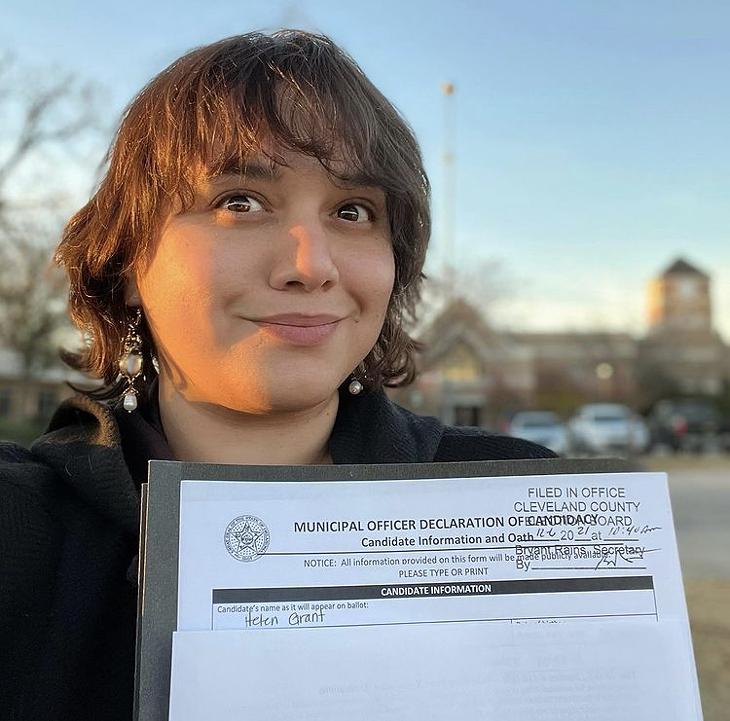Over the past few years, the city of Norman has been facing a major crisis of political confidence.
Starting with the citizen pushback against the proposed University North Park development and continuing through to the successful passage of measures reallocating police funding, the city’s substantial young liberal contingent began making big moves.
Then came the attempted recall of Mayor Brea Clark and a number of City Council members and a rash of lawsuits that have relegated much of the reallocated funding to financial purgatory, all spearheaded by the decidedly conservative Unite Norman group.
The city is serving as something of an unexpected microcosm of the full political landscape of Oklahoma, if not the entire country, with left and right each gaining and losing ground by turns, and all placing a larger focus on respective city councils than you’re likely to see almost anywhere else.
With city council and mayoral elections coming in 2022, all sides are looking to notch another win, and all are wading into battles on city issues ranging from homelessness and mental health to policing and urban development. Any one of these issues alone could form the entirety of a city council candidate’s campaign, but for Norman’s Helen Grant, they form a combined bigger picture that she intends to carry throughout her candidacy for the Ward 4 seat.
“These are not abstract concepts for me,” Grant said.
“These issues have an impact on my friends, neighbors, and the people I see just trying to get by in Norman.”
Grant thinks in terms of complex lists and details. Asked about the concerns and considerations of the city, she offers bullet point solutions or a first-hand story of watching these struggles play out in front of her.
Instead, she hones in on details and small but actionable moves that can believably be made from the city council, such as addressing city staffing, small-scale city infrastructure, and residents’ skyrocketing utilities.
“I know that right now the City of Norman is understaffed for a city of its size and population, and the recent discussion about how COVID and understaffing led to higher than usual water bills has everything to do with not having updated infrastructure and the employees needed to meet demand,” she said. “I also think it could be helpful to try programs like [citizen-voted funding practice] participatory budgeting to help neighborhoods address issues that matter to them, but that often get swept to the side, like sidewalks, curbs, and street repairs.”
“I would like to see an unarmed, mental health response option be fully developed by the city and I would like to work to ensure its sustainability.”
tweet this
This focus on listening to the city’s residents directly is at the core of Grant’s plans, especially when approaching one of the largest and most visible issues facing the city, particularly in the bustling downtown hotspots of Ward 4: Homelessness.
As a member of the Resonator arts space in Norman, Grant has been instrumental in stocking and managing one of the city’s most-used community pantries and refrigerators helping to serve unhoused and hungry residents, and it’s given her the opportunity to understand and listen to their needs firsthand.
“I’m well aware of how gentrification, stagnant wages for lower-income workers, often clustered populations of minorities, and people on fixed incomes are priced out of their neighborhoods,” she says. “We need opportunities for safe and affordable housing and supportive services like day shelters and transportation. And of course better coordination and communication to ensure effective use of our limited resources.”
There’s another important element in Grant’s plans for a more compassionate and supportive approach to city’s homelessness issue, however.
“We need unarmed mental health crisis response,” she said.
This is something that numerous cities across the country are attempting, and it sits at the center of the “defund the police” movement. The belief being that if a new and properly-trained department of unarmed mental health responders was established, it would both cut down on necessary police numbers and significantly reduce the number of homeless and psychologically struggling people killed or injured by police.
“I would like to see an unarmed, mental health response option be fully developed by the city,” Grant said. “And I would like to work to ensure its sustainability.”
That goal was a major driving factor behind the city’s decision to re-allocate more than $850,000 from its police budget in 2020. The money was intended to then be used in establishing a new crisis response department before lawsuits and conservative pushback forced the city to place holds on large portions of the funding.
Grant knows that funding is the first and most essential thing needed for the city, but that it has to be managed and appropriated very carefully, something that she believes is a realistic and achievable goal from the council.
Luckily, she already has experience helping consider how to responsibly handle city funding.
“When I was on the Community Development Block Grant committee, the question was, ‘How do you take HUD funds and apply them in a way that’s actually going to address the needs of a population that is low income?’ You’re trying to do good things and make this city nicer, but you also don’t want people to be pushed out of their neighborhood either.”
Grant has a difficult road ahead with the probability of a contentious campaign. If she wins the seat, she faces the likelihood that others on the city council already see her as an enemy.
Her hope is to use the position as a way to help guide and encourage fruitful conversation in the city and to help steer the rhetoric and conflicts away from the high tensions and partisan retaliation of the past few years.
“I think my strategy is to just do the work and de-escalate where possible.”











